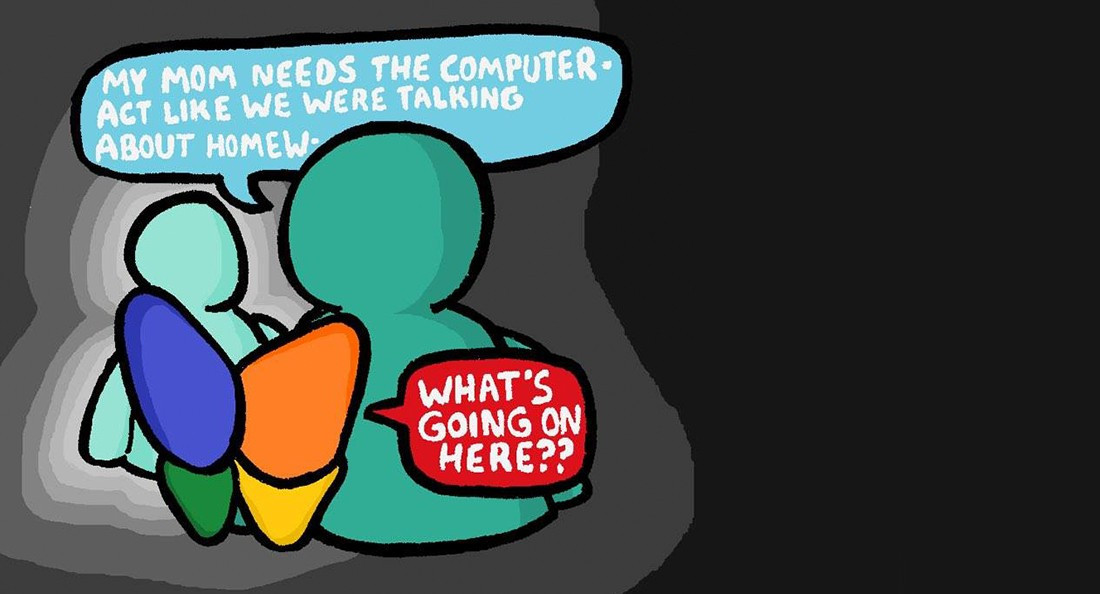Hitting puberty in the advent of instant messaging
Communicating post-internet, pre-smartphone
Instant Messaging (IMing) is a popular, inexpensive way to keep in touch with friends. But it wasn’t so long ago that online communication was exciting and new, leaving lasting impressions on those who engaged with it.
“I got the internet when I was 12. So, like, I basically hit puberty and got the internet,” Felicity Fawn, performance artist, says.
Until 1998, she was only able to access websites at school. Home internet was an event for Fawn, who grew up in Fisher Branch, Man.
“It was great. All these questions that you had and didn’t know who to ask, there was the internet. It was amazing,” she says. “I figured out when I was 15 that I was bi, and I dealt with that by going online and talking to people and realizing that ‘Hey, it’s all good.’”
Alex Mutcheson, a familiar face in Winnipeg’s improv and comedy scene, grew up in Morden, Man., where most guys his age were into sports.
Like Fawn, he found a level of self-acceptance online. Chat rooms and file-sharing sites were useful for meeting like-minded friends.
“You find that you’re not so alone when you realize that there are other people that like the things that you like, and as much,” he says.
Though many people were starting to use IM programs to keep in touch with classmates, Mutcheson didn’t find the programs enhanced his social life. He calls MSN Messenger the beginning of cyberbullying.
“I was pretty awkward,” he says. “It was kind of puberty mixed with bullying and everything else. It didn’t really add anything positive to my life.”
At one point, he had to change his email address, because someone from school relentlessly teased him about his username, Big Al.
Fawn loved talking to school friends on MSN and found it helpful when communicating with them on an intimate level.
“Anytime I had to have an important conversation with anybody, I would always tell them to go online, because this way I could get all of my thoughts out and nobody would interrupt me,” she says. “Even now, it’s not so bad, but I always had trouble getting my thoughts out verbally.”
She says she remembers it allowed for some teenage mind games though.
“You could always tell what was happening with who by the song lyrics they were using in their statuses,” she says. “Or like accidentally typing ‘I really like so-and-so’ or whatever and saying ‘Oops! Wrong window.’ That wasn’t an accident.”
Fawn avoided having a smartphone for a few years. She says she can become overwhelmed by the number of apps available. At times, she craves the uncomplicated nature of early ’90s internet.
“I liked how people couldn’t find you. You had to give them your information. It was more like a phone number than Facebook is,” she says.
Fawn says she avoids drama by keeping her online interactions simple, using Facebook the same way she’d use any instant messaging app.
Published in Volume 71, Number 21 of The Uniter (February 22, 2017)







